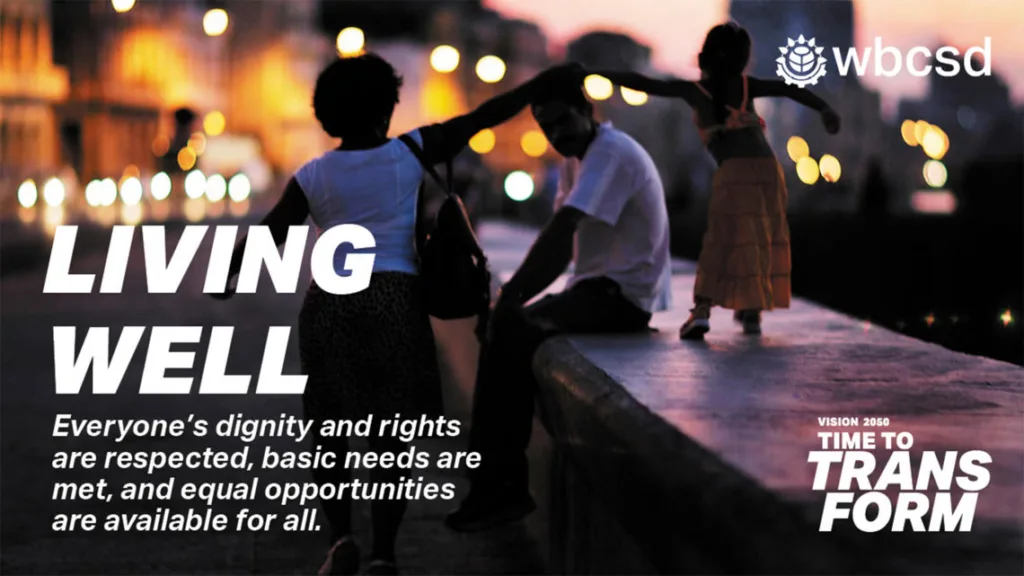Are you a sustainability leader struggling to convince peers that a people-centered, or “Just Transition”, approach is not only the right thing to do but also essential for business resilience and competitiveness? You’re not alone. Below are nine common misconceptions we often hear, and how to reframe them.
#1: We don’t talk about a Just Transition here, so we cannot act
The terminology may not work in your context, but the underlying issues certainly do. Companies across all sectors must account for the people impacted by shifts to greener practices: workers, consumers, and communities who may be displaced, disrupted, or in need of new skills. Treating people as an execution function limits your transition capacity. Treating them as a strategic asset and opportunity reduces transition and physical risk while accelerating innovation and acceptance.
#2: This is only about the energy sector
Not so. Every sector is exposed to transition and physical risks, affecting people and the environment. Mining companies are pushed to expand into indigenous territories, agrobusiness needs to finance and upskill farmers for regenerative practices, and industrials must engage communities when phasing out or repurposing assets. Across industries, people are the engine of the transition, through behavior change, new skills, and community acceptance.
#3: The business impact is negligible
This belief underestimates reality. Ignoring people impacts can lead to labor disputes, project delays, reputational damage, legal risk and supply chain instability. Each translates into real costs and lost opportunities. Integrating people considerations makes transitions smoother, cheaper and more resilient, while positioning companies to capture emerging markets, capital, and sourcing opportunities [1].
#4: We cannot afford another sustainability agenda
This is not another agenda but an integrated one[2]. The value lies in connecting existing business processes – such as workforce planning, product innovation, stakeholder engagement – to climate and nature strategies and plans. This can reduce fragmentation, surface synergies and identifies trade-offs early on. Companies that integrate people and climate agendas are more efficient and effective, reduce duplication and build internal coherence for change.
#5: We already cover this in our climate and people strategies
It might be covered, but have you connected the dots? Many companies have not mapped how climate and nature actions affect people, or how physical risks impact people and operations. For example, a manufacturing facility may have a climate risk plan for asset damage but not for workforce displacement or community impacts. Undertaking a people-impact assessment of transition plans can reveal hidden costs and/or opportunities that standard climate or social sustainability strategies overlook.[3]
#6: People-centric transitions are place-based and we cannot act globally
Global companies already balance global ambitions with local realities. The same frameworks that guide transition planning – stakeholder engagement, human rights due diligence and workforce transition strategies – are being applied across geographies and adapted to local contexts. Applying a people lens globally leads to consistency and scalability, while respecting local variation.
#7: There is no guidance on how to manage people-centric transitions
In fact, there is considerable guidance. The Taskforce on Climate-related Financial Disclosures, the Transition Planning Taskforce Disclosure Framework, the UN Guiding Principles on Business and Human Rights and the International Labour Organization all set expectations on managing climate risks and social impacts. Leveraging these frameworks gives structure to people-centered transition planning and supports credible disclosures to stakeholders. This year, in our WBCSD People Action workstream, members are guided to take their next step in integrating people considerations into climate transition planning.
At the same time, more guidance is in the making. For example, the Taskforce For Inequality and Social-related Financial Disclosures[4], is developing a global disclosure framework that supports and incentivizes effective monitoring, management, and reporting of human rights, labour rights, inequality and other social risks, including in relation to climate and nature. Shift, WBA, and BSR, are refining a set of just transition metrics[5] for companies to apply within the same ‘boundaries’ as those that they apply to their climate transition plans and activities.
#8: Governments should deal with this, not the private sector
Governments set the rules, but businesses control a large share of the investment, supply chains, jobs and skills impacted by the transition. Companies that act proactively can shape the transition, access early-mover advantages, and reduce regulatory shocks. We Mean Business Coalition and BSR have come out with 12 policy asks[6] for business that are keen to advocate for stronger people-centered transition policies with government.
#9: Our suppliers will take care of it
Supply chains are only as strong as their weakest link. Companies need to support suppliers with capability, finance and standards to manage people risks and opportunities such as workforce transition, community engagement or consumer acceptance of new products. Companies that engage suppliers early build more resilient, aligned supply chains and reduce the risk of last-minute disruptions.
In summary
A people-centric transition is not merely a moral or social imperative – it is at a minimum a business necessity. Firms that embed people considerations in their transition and adaptation planning will move faster, incur fewer disruptions, unlock new value and build stronger reputations. We invite leaders to flip their mindset: from seeing people as impacted by the transition to seeing people as the transition engine.
What’s next?
If you recognize these beliefs, and want to work towards an integrated climate transition that embeds people considerations into your organization’s governance, strategy, and operations, we offer at least two ways to engage:
- Read our WBCSD x ERM Business Leaders Guide to a Just Climate Transition
- Join our WBCSD People Action Program to participate in our Workstream: Sector-specific Implementation to a People-Centered Transition, where we take a hands-on approach to integrating people considerations into transition and adaptation planning. Contact @WBCSD People Action, @Wouter van Monsjou or @Gabriel Rambaldi to learn more and/or schedule a call.
Footnotes
[1] Business Leaders Guide to a Just Climate Transition | WBCSD
[2] Integrated Transition Planning: A Short Introduction | WBCSD
[3] Costs of Company-Community Conflict in the Extractive Sector – Shift
[4] Taskforce on Inequality and Social-related Financial Disclosures | TISFD Global Initiative
[5] Building Consensus Around Just Transition metrics – Shift
[6] How Stronger Just Transition Policies Can Enable Business Action | Blog | Sustainable Business Network and Advisory Services | BSR
Outline
Related
Content

The Case for a People-first Approach to the Just Energy Transition
18 July, 2024

We CAN create a world in which more than 9 billion people live well, by 2050
1 June, 2021

A Net Positive imperative: Why and how business must lead on sustainable, people-centered growth
8 May, 2025
